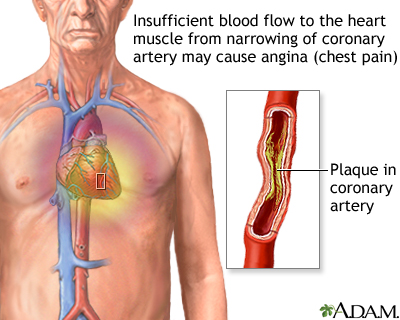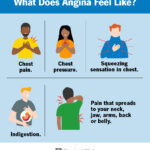Chronic angina is a type of chest pain that occurs when your heart muscle isn’t getting enough oxygen-rich blood. It’s a symptom of coronary artery disease (CAD), which is a condition in which the arteries that supply blood to your heart become narrowed or blocked by plaque buildup.
Chronic angina is a common condition, affecting millions of people worldwide. It can be a debilitating condition, but there are treatments available that can help improve your symptoms and quality of life.
Symptoms of chronic angina
The most common symptom of chronic angina is chest pain or discomfort. The pain can feel like:
A squeezing, pressure, or tightness in the chest
A burning sensation in the chest
A pain that radiates to the shoulders, arms, back, jaw, or teeth
The pain is usually brought on by exertion or emotional stress and goes away with rest or nitroglycerin medication.Causes of chronic angina
Chronic angina is caused by coronary artery disease (CAD). CAD is a condition in which the arteries that supply blood to your heart become narrowed or blocked by plaque buildup. Plaque is made up of fatty deposits, cholesterol, and other substances.
Risk factors for chronic angina
There are a number of risk factors for chronic angina, including:
High blood pressure
High cholesterol
Smoking
Diabetes
Obesity
A family history of heart diseaseTreatment for chronic angina
There is no cure for chronic angina, but there are treatments available that can help improve your symptoms and quality of life. These treatments include:
Lifestyle changes: Quitting smoking, eating a healthy diet, exercising regularly, and managing stress can all help improve your symptoms and reduce your risk of heart attack.
Medications: There are a number of medications that can help improve blood flow to the heart and reduce chest pain. These medications include nitrates, beta-blockers, and calcium channel blockers.
Procedures: In some cases, procedures such as angioplasty or bypass surgery may be necessary to open up blocked arteries.If you think you may have chronic angina, it’s important to see a doctor right away. Early diagnosis and treatment can help prevent complications such as heart attack and stroke.

